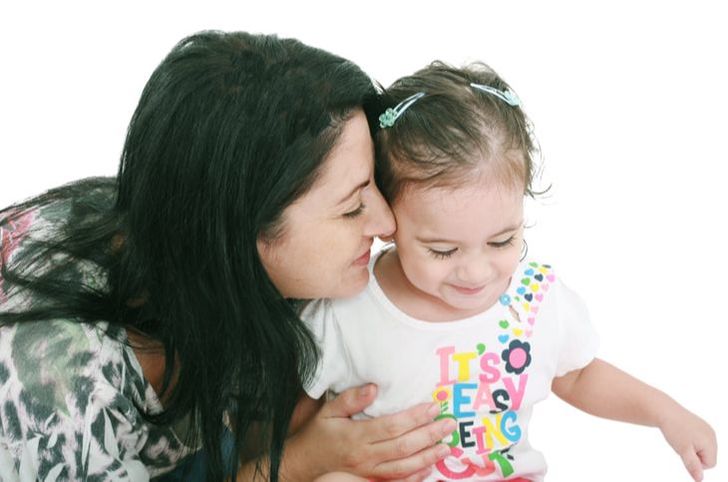 It can be difficult for a childcare professional to see a young child hurt or abused by an adult or someone they know and love. You may experience a time when a suspected case of abuse or neglect will need to be documented and reported. Although this may be difficult to do, it is essential in order to protect a child in your care. Below are some questions and answers that may help you as a childcare professional when it comes to handling suspected child abuse cases. Question: What can I do to help a child that has been abused? Answer: As a child care provider, it is your responsibility to create a safe, welcoming, and inclusive environment for all of the children in your care. Children who have experienced abuse are no different in their need for this type of environment. Maintaining a program where children are safe, nurtured, and supported by trusting adults will help children who have been victims of abuse a great deal. In addition to maintaining these standards in your program you should be well aware of mandated reporting laws and procedures as were covered in this course. As a mandated reporter, it is your responsibility to report abuse, but not to attempt to investigate the claims. When working with children who were victims of abuse it is important to keep this in mind as well. Question: Do I need to take further action if it has been determined that abuse has occurred and how do we keep the child from being moved from foster home to foster home? Answer: As a licensed child care provider, or a staff member of a child care program, it is not your responsibility to take any further action other than to report the suspected abuse and to document. If CPS determines that there is sufficient reason to investigate the reported abuse, or if the abuse is determined to have occurred, then CPS is in charge of determining what happens next. You should follow whatever instructions you are given by CPS or DEL regarding the matter. Once the child becomes a ward of the state, and enters foster care, unfortunately you cannot control them being moved between foster homes. Question: What do I do if I have been reported for suspected child abuse in the center where I work? Answer: Here is more detailed information straight from Washington State DSHS: https://www.dshs.wa.gov/ca/child-safety-and-protection/what-happens-once-abuse-neglect-reported Please consult your director or licensor for more information if you are unsure. For more information on Child Abuse and Mandated Reporting in WA State, register for our two hour course: https://www.cdastars.com/store/p383/Child_Abuse_and_Mandated_Reporting_for_Child_Care_Professionals_in_Washington_.html Have information to share? Please use the comments section below...
3 Comments
 How do you communicate with the children in your care? Are you calm and consistent or loud and unpredictable? The way you communicate with your young students can have a profound impact on how they react and interact in the classroom. Caregivers must be able to interact with children in a nurturing, respectful, supportive, and responsive ways; guiding children to learn positive communication techniques. Below are some questions and answers in regards to communicating with children effectively. Question: How do you communicate with toddlers, especially ones that refuse to participate in the more necessary things? Answer: It is most helpful to get to the root of the child’s reason for not participating in necessary things. Some children struggle with executive function, sensory processing challenges, or hearing and communication obstacles. These types of challenges mean that the child will often need specific instruction given in several different ways. It is important to know the child and what will work best for them. Good communication with toddlers often includes patience, persistence, and understanding. Toddlers have limited language that is rapidly developing as well. It’s important to communicate with toddlers on an appropriate level and to be flexible as well. Question: How do you communicate with a child that completely ignores you and covers his ears when you talk to him? Answer: There are several things that you can do to help. First, speak with any other teachers who have worked with him. Perhaps they have tips or ideas to help. Next, consider your approach. Is there something about the way that you’re communicating that could be bothering him? Last, don’t be afraid to work with his family to communicate your concerns and find some strategies for moving forward. Question: What if a child still does not listen to you? Answer: Effective communication takes time and effort from both parties. Be patient, be persistent, and be positive. For more information on Communicating Effectively with Children, register for our one hour course: https://www.cdastars.com/store/p238/Communicating_Effectively_with_Children.html Have information to share? Please use the comments section below...
|
Blog Author
Archives
January 2018
Categories
All
|
Successful Solutions Training in Child Development
Enrollment HoursMonday - Friday 7 am – 8 pm
Saturday & Sunday 9 am – 8 pm Holidays 9 am – 8 pm |
Telephone(360) 602-0960
|
info@mycdaclass.com
|
Registrations that are submitted after enrollment hours will be processed the next morning. You will receive an email with your log-in information to access the course within an hour after we open the next business day.
 RSS Feed
RSS Feed

